Rome
2019-09-10
by Niklas Göransson
Rome is a Luxembourgian neo-folk project courtesy of multidisciplinary artist Jerome Reuter. Drawing from the past in posing questions about the present – introducing the new studio album, Le Ceneri di Heliodoro.
The following is an excerpt from the full article, which is twice as long and published in Bardo Methodology #5. The same issue also includes conversations with BLASPHEMY, DAUTHA, CLANDESTINE BLAZE, ACRIMONIOUS, LYCHGATE, MORBOSIDAD, NUCLEAR WAR NOW!, CULT NEVER DIES, MYSTIFIER, W.A.I.L., WINTERFYLLETH, and PHURPA.
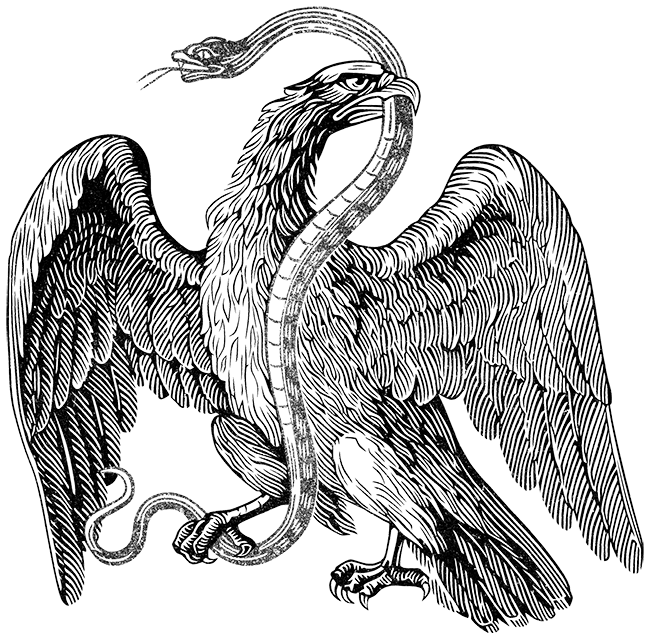
– The Ashes of Heliodoro… whoever that is. Honestly, I loathe dissecting my own work; it’s best to let the audience see for themselves. And yes, this sounds like an easy way out of a straightforward question but I think this modern world lacks the pleasures of discovery as much as our daily life lacks poetry. So, I’d rather not rob anyone of the opportunity to see for themselves. It must be a discovery for the listener. You don’t want everything presented… like, ‘This is how it happened, here’s what you need to understand, this is what that means’, etcetera. I detest giving away details about the genesis of my records. Every individual piece of art has to work outside of your own context, it’s a beautiful thing how an album can mean all these different things depending on who’s listening. I don’t want to prejudice people’s enjoyment of the work by giving away too much information although, obviously, I have all the answers – haha.
I was unable to find a single media appearance since 2016, so it’s difficult to gauge what ROME has been up to for the past two years.
– I don’t know. I forget things really quickly if they’re not extremely relevant to the next day. I’d have to check my calendar to see what I’ve been doing but it all seems like an endless stream of studio days, live dates… time spent in transit mostly. Looking back, I can only make out a cluttered trail of boarding passes and half-read books. Also, I’ve been quite reluctant to give interviews as of late because – and forgive my candour – it’s mostly been a complete waste of time, both for myself and certainly also the reader. Being asked the same kind of uneducated, uninspired questions each and every time is just so dreadfully tedious. I undoubtedly sound very arrogant in saying this but, honestly, after having given a great number of interviews… or what I consider great anyway, I believe myself not an inch closer to any true understanding of the whole endeavour and have grown increasingly weary of the self-analytical voyeurism encouraged by it. I despise that.
Not a massive fan of introspection, I take it?
– No. I don’t want to know who I am, I’m perfectly fine with being left in the dark. In fact, I rather enjoy that. Shining a light on everything can ruin anything. I believe psychoanalysis to be one of the worst inventions in recent history; there’s a straight line going from its inception to today’s hysterical onslaught of behavioural norms and expectations. Nothing could be further from my work and thus I refuse to oblige, mostly. It’s not like I have any real wisdom or something important to say that I’d rather keep from you. I’m really not that much of an enigma, but what little mystery there is I’d like to keep for myself – both for my own sake and ultimately also my audience.
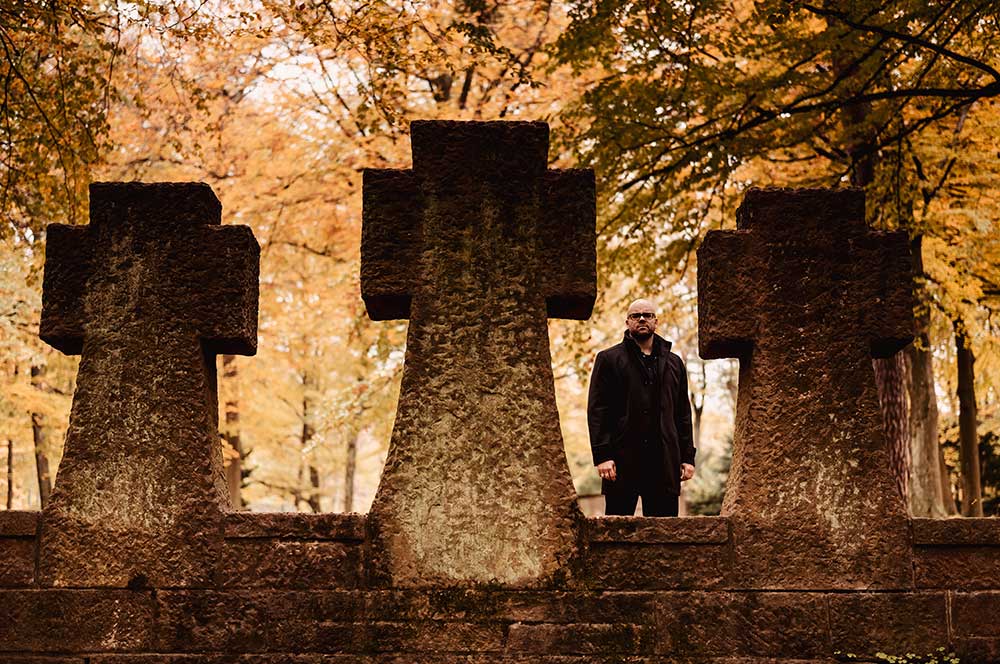
In August 2018, ROME released an EP called “Who Only Europe Know”. I must admit to some surprise upon noticing both lyrical references to and spoken samples of Enoch Powell, a prolific Conservative British politician who in 1968 caused a massive uproar when he delivered what later became known as the Rivers of Blood speech, in which he warned the British populace of what he predicted to be the consequences of mass immigration. That, I must say, is an adventurous move in a time when a metal band exclusively oriented towards esotericism can get shows cancelled for using a Julius Evola sample. ‘Will there be rivers of blood?’ Jerome asks repeatedly in the chorus; ‘I don’t know’ he responds the first time, and then, ‘I hope not’.
– Yeah, maybe I dug myself a hole with that song. Essentially, “Who Only Europe Know” poses a question. It’s a difficult and somewhat controversial question, agreed, but I believe that’s the artist’s job. I consider it my duty to ask questions. People should never look to artists for answers though –artists don’t know shit. But those who’re good at what they do will have a talent for formulating inquiries of the unpleasant variety. In that regard I believe the social function of artists, if any, is asking questions no one has yet bothered asking because they’re either too scared or ignorant to the facts. Singing a question is easier than speaking it, in my opinion. You might get away with it.
Which questions are worth asking in art?
– The uncomfortable kind, obviously. I see that my contemporaries all want to ask the same questions, or are doubtful of some of the answers given in the mainstream discourse and so want their own voices expressed. Art is not about providing solutions though. In fact, if an artist tries to educate and point you in certain directions or presents a specific set of ideas as the one and true answer – whack him over the head, ‘cause he’s no better than your neighbourhood priest. In fact, the local clergy has a far scarier posse behind them than any of these self-proclaimed artisans will ever have. Mainstream culture lacks the spiritual side of things just as much as our society does.
Having yet to read the lyrics, I’m wondering if the aforementioned “Who Only Europe Know” is one of those songs which are designed to, upon first inspection, appear crypto-naughty but following further scrutiny turn out to be veiled sentiments expressing the opposite. The best example I can think of is when British neo-folk project OSTARA released a song called “Operation Valkyrie” in the year 2000; it started making the mp3 rounds across message boards and IRC and everyone was, depending on ideological inclination, either raging or fawning over it. This was before both the Tom Cruise film and Wikipedia so it took a while for people to investigate the song title and subsequently realise who were really being referred to as ‘Europe’s tragic nemesis’ and ‘murdered sons of God’, respectively. The opposing factions essentially switched sides but kept arguing. It was a beautiful spectacle to behold.
– Maybe it is something of the sort, yes. What’s the thrill in leaving things unchallenged? The war between the artist and the world is without truce. Art which does not reflect this strife operates in a creative vacuum amidst a rigid world and is thus quite dull on account of being unchallenging. Perhaps I got myself into trouble. I don’t want to give anything away, really, I guess people will have to decide for themselves. I think “Who Only Europe Know” is interesting because it doesn’t offer black and white answers to specific issues. Actually, that’s what I likein music as well as art overall – when things aren’t immediately clear. I mean, really, what are you expecting to learn from a slogan embedded in a chorus? All that virtue-signalling of whatever music considers itself to be ‘political’, I don’t buy it. That’s not the world we live in. This is not a time for simple answers, even though we tend to elect people offering exactly that… usually making things worse for everyone.
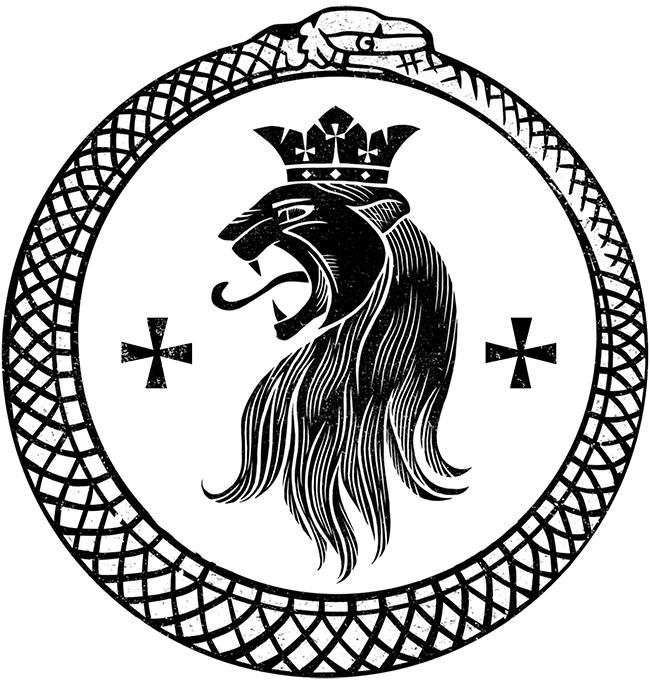
Jerome has often stated his preference for singing in English. Tracks such as “Der Krieg” from his 2016 album, “Coriolan”, constitutes a rare exception to this linguistic partiality on accounts of being sung in German. It’s interesting to note how it so drastically reshapes not only soundscape but also the wordless emotive aspects.
– I’m actually considering writing more in German. All of our culture lies in the language we speak, so switching tongue changes everything. You’re suddenly part of a different tradition and that’s something I firmly believe in. Tradition is something that’s modelled in the here and now. When writing, while shaping the now and the future you’re also taking from the past; engaging in dialogue with all those who came before. When I write in German, I have Goethe, Mann, Brecht, Jünger… all of these guys looking over my shoulder. Writing in English is part of a completely different tradition.
Having been born in 1981, Jerome says he suffered the full consequences of an upbringing under perpetual American cultural bombardment.
– I was born one day after MTV so I was screwed from the get-go. But of course, being exposed to the likes of MOTÖRHEAD, METALLICA, IRON MAIDEN, and any other English-speaking music at an early age was a good thing in many regards but it left me culturally confused. Many of us thought for the longest time that if you want to be successful, or even have your voice heard, you have to pull a SCORPIONS and sing in English. I never disliked it that much though because I was in love with British culture; especially back in my punk days.
Ah, yes. One remark I picked up on during my research was of Jerome having been in plenty of ‘rough situations’ during these punk days of his. Now, I must say that he doesn’t strike me much as the proverbial crusty chaos-monger. Consequently, I’m curious what kind of havoc they’d get up to on the mean streets of Luxembourg.
– Haha. Not much, indeed, no. Luxembourg is very, very quiet. I was probably referring to touring Europe in my old Oi!- band. There were some rough patches; lots of violence. Not that we were the instigators of any such behaviour, of course, but there were some tight spots. All of this was a valuable education but – while providing plenty of good stories – we didn’t like it at the time.
‘Good stories’ sounds exciting, care to elaborate?
– Nope. It was essentially just an endless stream of beer brawls across Europe, nothing I’d really like to get into. The violence made me question my involvement in that particular scene, for me it’s always been about the music. I don’t think there’s much to explore there, I’m afraid. I was still a teenager and I don’t want to give this more importance than it actually deserves.
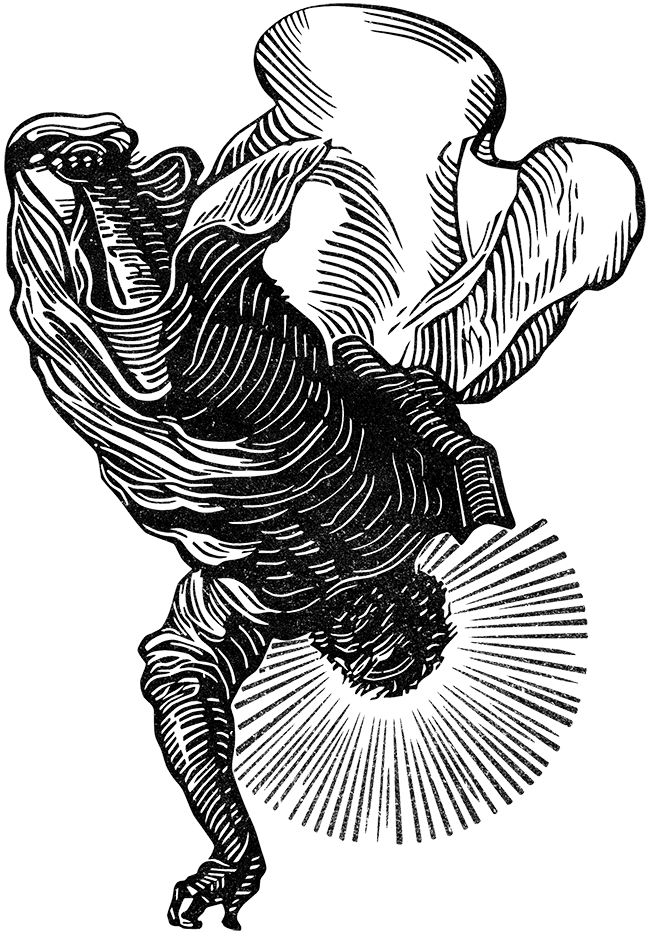
Reading up on his background, it occurred to me how a defining moment of Jerome’s life must’ve been in 2005 when he gave up his acting career in favour of music.
– It was an easy decision – mainly because I had one particular year in which I barely did any music due to being involved in quite a few drama productions. I’d always had longer stints without acting but with lots of musicianship. Turns out, I missed the music a lot quicker every time. And it felt as if what I was experiencing in the world of theatre had to find its way into music in order to be properly processed in my own way. All this made it quite clear that music was the thing for me and not the other way around. I don’t really miss acting all that much to be honest; I probably know too many actors to ever do. I’m exactly where I’m supposed to be now and maybe I just wasn’t all that good anyway. Perhaps I’d have thoroughly sucked and ended up miserable.
I also read that Jerome, rather than peddling ideas, primarily aims to depict emotions through his songs. This got me thinking that acting skills must be bloody useful for such a pursuit. The vocal delivery is obviously a much-lauded aspect of ROME’s sound, and I now realise how he’s able to summon such immersion in some of the more theatrical oratory efforts.
– Yes, as far as the vocal delivery goes, I have indeed employed acting techniques on some of my recordings; certainly on “Nos Chants Perdus” (2010) and “Flowers from Exile” (2009). But it runs much deeper than that in general – my acting experience is much more prevalent in composition than actual delivery. I try to immerse myself into this other life when I’m writing. That’s actually the hardest task of the entire process. It’s about finding that voice from which everything else will flow easily, because you just found the right tone. You can spend months and months researching content and vocabulary but it’s all pointless unless you have the voice. For example, I’d already finished much of “A Passage to Rhodesia” (2014) several years before the actual release, but it just smelled of shit. The material felt like a meaningless repetition of what I’d done before so I tossed the lot of it. Then at some point the music just clicked and I knew who was talking, it just kind of flowed from there on and everything seemed to fit.
However, he adds that the importance of literature can’t be emphasised enough.
– It’s much more important than any acting skills one may or may not have. As Ernst Junger used to say – and I’m paraphrasing clumsily here – I’m primarily a reader and then look for things I’ve read about in the real world. Allow me to also paraphrase Ezra Pound, who stated how poetry is a composition of words set to music; that poets who’re uninterested in music are bad poets. I believe this works the other way around too. A songwriter who’s not interested in literature and poetry cannot become a true contender in his sphere. Werner Herzog has repeatedly pointed out that in order to become a good filmmaker, one must read excessively. I take that advice to heart and, I believe, so should anyone else who attempts to create anything of value.
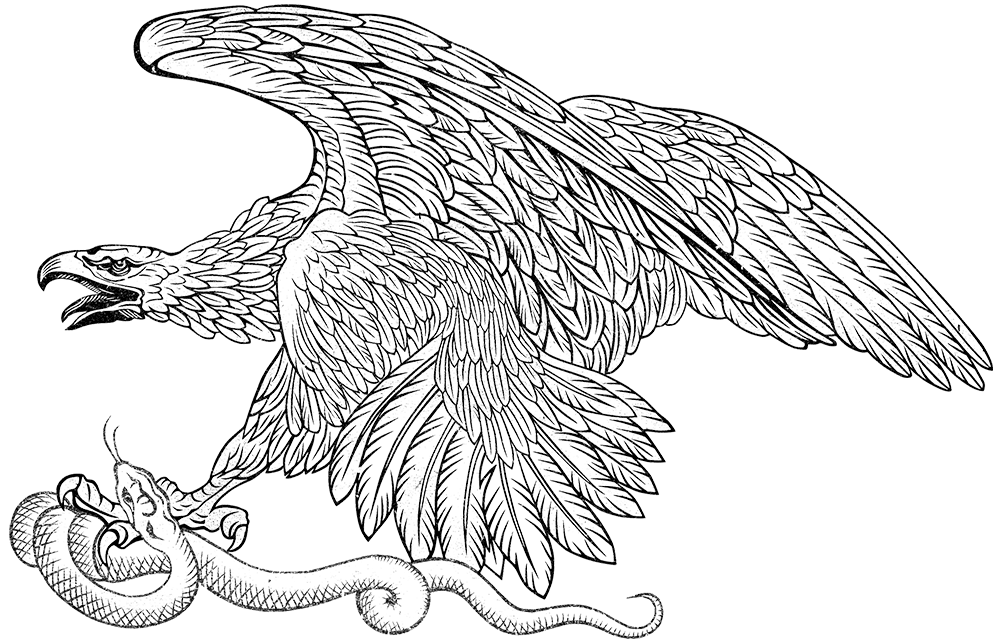
This was is an excerpt from the full article, which is twice as long and published in Bardo Methodology #5. The same issue also includes conversations with BLASPHEMY, DAUTHA, CLANDESTINE BLAZE, ACRIMONIOUS, LYCHGATE, MORBOSIDAD, NUCLEAR WAR NOW!, CULT NEVER DIES, MYSTIFIER, W.A.I.L., WINTERFYLLETH, and PHURPA.



